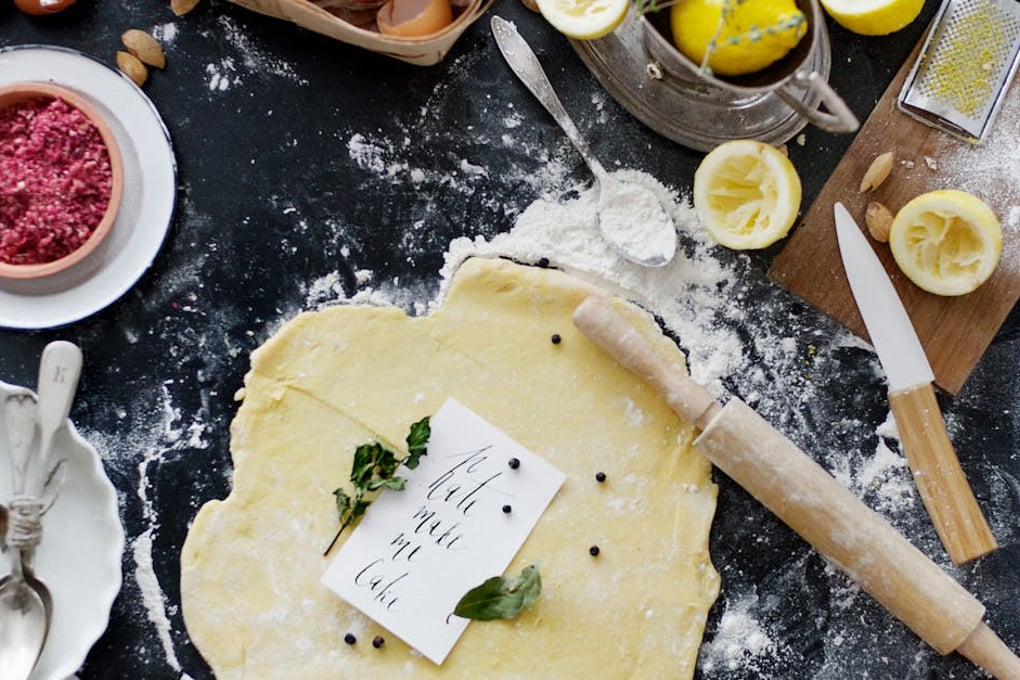The single most important thing is to begin! Experience is key to your success in becoming the next Gordon Ramsey. Here is the basics you need to know to start cooking now:
Spices:
Spices are the backbone of cooking. Being able to utilize spices properly brings your cooking game from zero to one hundred.
First thing first, buy yourself an extensive spice rack.

So how do you learn to use spices?
Once you have your rack, it is time to use it. The undisputed best way to become proficient in spices is through practice. Different spices bring out each other’s flavors, while other spices will amplify the taste of your dish. To practice, start off by cooking basic recipes, following instructions to a T! Some examples for this could be:
Soups, grilled chickens, and basic pasta dishes.
In this way you can learn the proper proportions and interactions of spices, the most important being salt and pepper! There are hundreds of spices that people use to cook, and learning the differences between them takes patience and experience.
Once you have a solid base in understanding how spices interact with food, the next step is to experiment yourself! I advise doing this with meats or eggs as spices play the largest role in these foods. Learn your own tastes, find what spices are spicy, bitter, salty, earthy. The key here is always trying new things until you master your palette.
Knives:
The single most important tool in the kitchen, the drawer’s paintbrush of cooking, is the knife. A clean, sharp, and properly sized knife is the strongest weapon in your arsenal.

Why are knives so important?
A sharp and well-balanced knife is the key to being under control when cooking and cutting, with which safety comes along with. Almost every single dish you will cook in your new career as a chef requires a knife, so choosing the proper knife is important to your success in the kitchen.
I highly recommend getting a high quality steel knife with a length between 7 and 9 inches. More important though, is feel. The way the knife sits in your hand and the balance of the weight should make you feel completely in control.
Knife skills:
Having a strong tool is useless though without proper knowledge and skill. The first thing chefs learn in culinary school is proper maintenance and cutting skills with knives.
What you need to practice become proficient in the kitchen with your knife is uniform cutting, chopping, and cutting.
Uniform cutting is often overlooked, but proper sizing and cutting leads to consistent cooking and cooking times throughout a dish. Having pieces of a dish under cooked can make something great into something less than average.
Chopping and learning the proper way to prepare items like tomatoes and onions makes your life in the kitchen much easier. Below is a fantastic video that shows how to properly cut an onion:
Cutting is probably the most important and common thing you will do with your knife. Mastering this can take a long time. But it is important to be safe, so when you are learning how to properly cut, be sure to take it slow and watch your fingers. I have linked an article from Natalie Vandenburgh at Georgetown that goes deeply into five cuts commonly used in cooking. I highly recommend reading this before beginning to cook if you have no experience.
Knife Skills Everyone Should Know
Maintenance:
Maintenance of both your knives and other tools is extremely important, both for cleanliness and safety. Knives should be stored with a cover or in a knife block, and should always be cleaned both before and after cooking and in between cutting different foods (especially when dealing with poultry).
Knives also need to be kept sharp. A good investment would be a whetstone to keep your knives sharp, as a dull knife requires much more time and strength, and can also lead to slipping which risks injury.
Learning through example:
Start off by cooking simple dishes like risotto, gumbos, grilled chicken, or simple pasta dishes. Although it is fun to experiment and create your own dishes, being successful first requires following in the footsteps of those who have cooked before.

Why is it important to follow recipes exactly?
When learning to cook, there are many basic skills, tips, and tricks that elevate your cooking you have not learned yet. The best way to learn these is through replication and practice. Things like how to sweat peppers, make a roux, and create sauces come through experience. Your skill and time in the kitchen are directly correlated.
Once you feel comfortable and have mastered a few dishes, feel free to start experimenting and utilizing what you have learned.
But most important of all, is to have fun with it!
Learning to cook can be overwhelming and can take years to master. During this process, make it enjoyable by cooking what makes you happy. Play to your tastes and indulge in the fact that the delicious meal you are eating was made solely by you!

